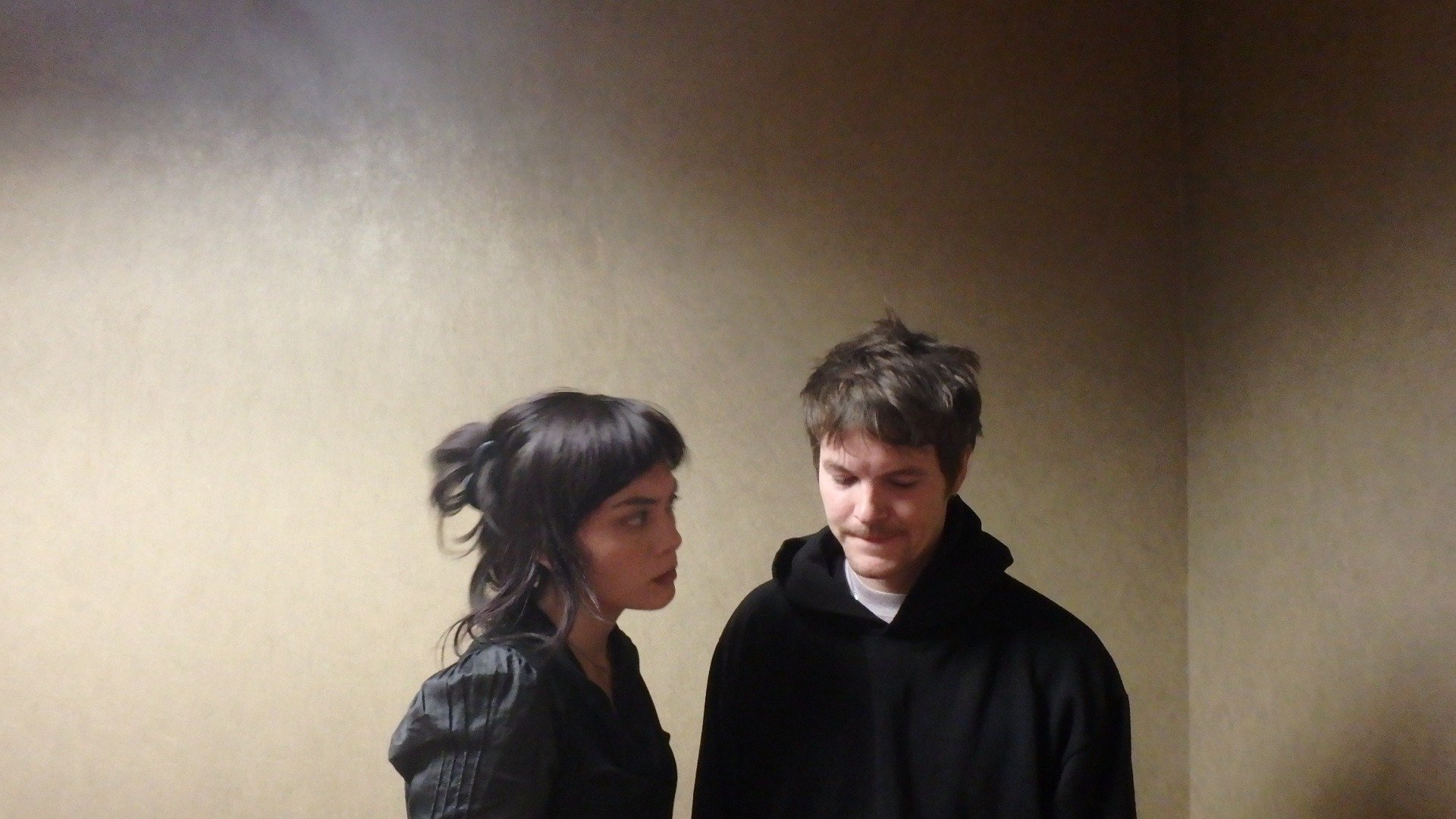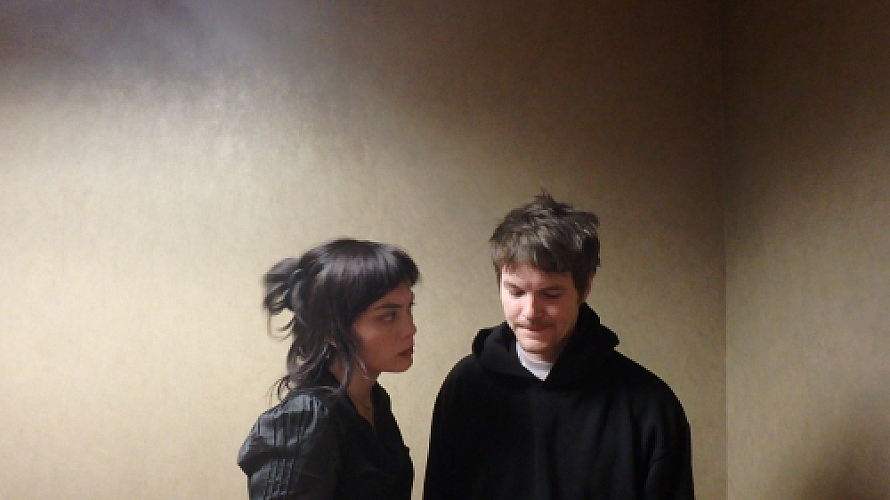Chanel Beads — the project of New York-based musician Shane Lavers — announces his debut album, Your Day Will Come (out 4/19 on Jagjaguwar), and shares the lead single/video, “Idea June.” Your Day Will Come marks Lavers’ arrival as a new force in experimental music. Throughout the album, Lavers captures the many contradictions of modern existence and the strange infiniteness of the digital world. Though he incorporates the scrappy sonics of post-punk, the gripping sentimentality of pop tunes, and the spectral artifice of electronic music, he blurs lines through unconventional song structures that build into transcendental climaxes. As he intentionally prints his songs down to embed fried artifacts and ghostly remains, the resulting songs have a time-collapsing quality, both transitory and timeless.
Following previous single “Police Scanner,” “Idea June” features live bandmate Maya McGrory taking lead vocals to project Lavers’ lyrics. As McGrory sings in a voice that’s both earnest and digitally processed, it’s as though she’s speaking as a separate embodiment of Lavers. In under two minutes, the track of clunky acoustic guitar and gutting strings lands somewhere between detachment and kinship. The track becomes strangely affecting in its unfinished and liminal form, and Lavers, who is drawn to poor MP3 rips and transitional moments in DJ mixes, knows that these inexact musical artifacts evoke human imperfection.
Lavers first started writing Your Day Will Come during a period of reflection in November 2022. Stuck quarantining in his Brooklyn apartment, he found himself wanting to dig down into the core of who he truly was, apart from fleeting trends or rebounding cultural moments. So during that strange time between winter holidays, he started to write songs that wrestled with loss that rippled through his life, foundational to the way he sees himself and the way he relates to others. Many of the lyrics that remained were in response to both internal and external conflicts. They were words that he had to speak aloud to uncover the reality of the situation.
Throughout, Lavers weaves in contributions from McGrory and experimental violinist Zachary Paul, who offer their own layers of feeling that add to the huge emotionality of the album. Accustomed to performing in various bands when he lived in Seattle, Shane began to strip everything back when he started playing shows around New York, working to locate what felt worthy for him to perform. That mindset informed the writing of the record, in which Lavers forced himself to only keep what felt the most necessary to say. “There was a filter to this record,” Lavers says. “If it didn’t move me while performing, then I couldn’t make it into a song. As much as I wanted to make something that was cool to the touch, I had to make something that made me feel something.”
The idea of “fake jazz,” coined by Donald Fagen in a Steely Dan documentary, also informed Lavers’ production philosophy for Your Day Will Come. Admiring the phrase for making the distinction between a commercial, glossy version of what some would consider to be the “real” genre, he sought out to craft his own confusing distortions of his inspirations, like The Blue Nile, Prefab Sprout, and David Sylvian.
The title of Your Day Will Come is another double-sided trick. It could be read as a promise of the arrival of good karma, or it could be a reminder of one’s mortality, said out of spite. Yet as Lavers unpacks the haunting feelings of the past that he must release in order to move into his future, he reminds us that grief and hope might be closer than they seem to the naked eye.


